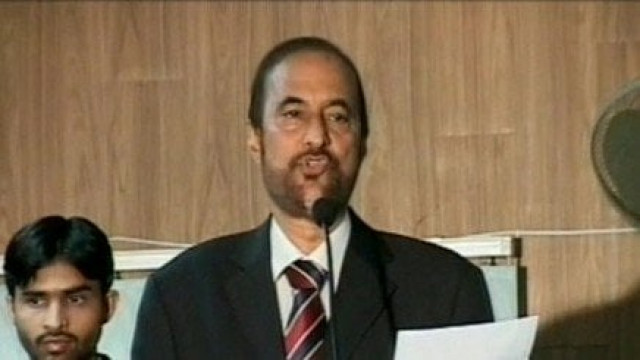Islamabad high court: future uncertain

Not only does the court owe its rebirth to the amendment, it will be the first court to be staffed according to the controversial new procedure for appointing judges contained in the amendment. According to the newly amended constitution, an eight-member judicial commission headed by the chief justice of Pakistan in addition to the chief justices of all four provincial high courts will initially appoint the chief justice and other judges of the Islamabad High Court.
As required by the 18th amendment, the Ministry of Law issued the notification for the establishment of Islamabad High Court on Thursday, which was to become operative “with immediate effect”. To expedite the process, a three-member committee headed by the Attorney General of Pakistan Maulvi Anwarul Haq was to make the rules of business of the IHC. The committee was also tasked with the formation of laws regarding salaries and perks for the employees of the court as well as the rules governing their service. But there is the outstanding issue of the challenges to the 18th amendment.
If the provisions regarding the appointment of judges are shot down by the Supreme Court, how is the IHC to acquire judges? “We are not against the establishment of Islamabad High Court but we have reservations on the procedure adopted in 18th amendment for the appointment of judges in Supreme Court and High Courts,” explains Supreme Court Bar Association president Qazi Anwar, who’s one of the four petitioners. “Till the five member bench decides the fate of this amendment, it will remain operational,” says Anwar.
This is the reason, Anwar says, he did not apply for a stay order against the establishment of the court. Meanwhile, the capital city is abuzz with rumours that the judges of the old IHC will return to the new court. However, constitutional lawyer Umar Sajjad doesn’t think this is possible. “Those judges can’t be reinstated at any cost because they all were PCO judges and the Supreme Court has already declared General Musharraf’s November 3rd actions as illegal and invalid in its judgment of July 31,” he says.
“The procedures and methods of the judicial commission have yet to be finalised [by the implementation committee] and after that, it’s up to the chief justice, when he summons the meeting of the commission,” says Sajjad. However, he doesn’t see anyone in a rush to appoint the IHC judges before the Supreme Court pronounces its verdict on the four petitions before it. In its July 31 verdict, the Supreme Court had struck down the order for the establishment of the IHC by holding it illegal, since it was set up under the Provisional Constitutional Order imposed by former president Pervez Musharraf.
All the judges who had been transferred to the IHC from other courts had been ordered to return to their original seats. And those who had been specifically elevated to the bench were told they could go home. Meanwhile, IHC employees had been told to revert to their original positions or to report to the federal surplus pool. When the matter came up before the Supreme Court, under Justice Hameed Dogar, the SC had decided in favour of the establishment of the IHC, which was to start functioning in Feb 2008.

1724319076-0/Untitled-design-(5)1724319076-0-208x130.webp)

















COMMENTS
Comments are moderated and generally will be posted if they are on-topic and not abusive.
For more information, please see our Comments FAQ